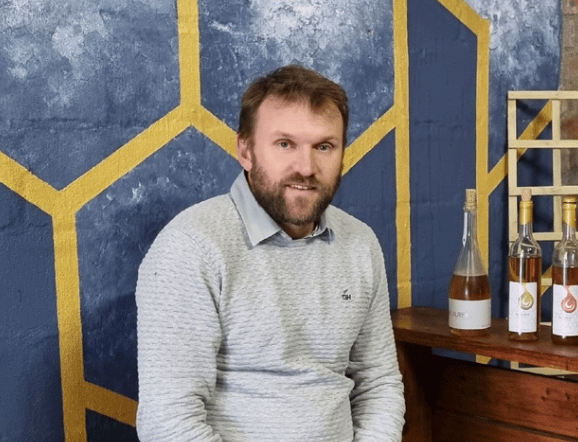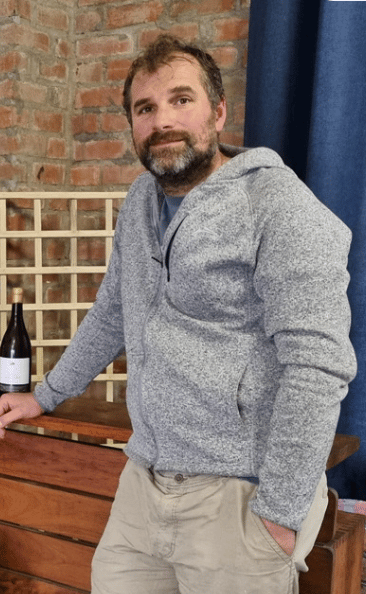From forbesafrica.com
Producing and retailing mead, Ernst Thompson and Robert Bernatzeder aim to establish it as a mainstream alcoholic beverage in African society and tell its story on the continent
MEAD IS THE FIRST ALCOHOLIC DRINK connected to humans and is thought to have originated in Africa some 20,000 years ago, but along with the Vikings and other medieval marauders has largely been surpassed by modern equivalents. That is until now.
Made from fermented honey, mead is growing in popularity again thanks in a large part to the television series Game of Thrones and the throngs of its followers who lap up every detail of the show to replicate in their daily lives.
“Many people in South Africa don’t know what mead is, despite the fact it is a real African drink,” Dr Ernst Thompson, owner of Cape Town Meadery, tells FORBES AFRICA.
“It is massive in the United States. Popular culture has commercialized it there over the last 10 or 12 years and it is the fastest-growing alcoholic sector.”
In South Africa, mead was a way for the Khoisan people to ‘speak to the Gods’ and is known as iQhilika in the country’s Eastern Cape province, where it remains a popular drink with cultural significance.
But it is a tiny market in what is a huge beverage industry in the country, something Thompson is hoping to change having partnered with brother-in-law and fellow entrepreneur Robert Bernatzeder.
Their meadery, the only one of its kind in South Africa, bottles traditional products, as well as mead-based sparkling wines and beers.
“The beauty of the technology we use is that it was developed in South Africa and based on indigenous knowledge,” Thompson says.
He admits it can be a tough sell to get people to switch from traditional wines to mead products, especially if there are preconceived ideas that it is too sweet, but says those who taste it are very pleasantly surprised.
“Liquid on lips is key to get people to try the product and it is great to see the reaction we get at tastings, which are key for us in educating the market about mead. The only real difference is that the alcohol is not produced from the sugar in grapes, but rather sugar in honey.”
Their champagne-style product is “proper bubbles” according to Thompson, and a variety of it is exported under licence to the United Kingdom and Germany as the Van Hunks brand.
“We are the only people in the world who really do this [create mead-based sparkling wine] and we are able to do it because of the technology we have developed,” he says.
“I have got a PhD in Nutritional Physiology, I love biotech and fermentation. My previous business, Beonics, was based on creating natural antibiotics from propolis, which is also from bees.”
I have learned a lot, but it has been expensive lessons. Now I can focus on what I am good at,” Thompson says.

Bernatzeder has vast experience in entrepreneurship having started his first business at the age of 19, and currently has interests in tourism, software development, an accounting company, food production, distribution and IT.
“The meadery got to the point where it was starting to take off and that is the stage where most businesses run out of money and resources. It was a critical point to get involved and add expertise,” Bernatzeder says.
“Educating the market is the biggest hurdle we face. We need to tell the story of mead in Africa. The ability to scale production is also something we need to figure out.”

They are assessing the viability of opening a meadery in Zambia, one of the biggest producers of honey in the world and from where they source their raw materials.
But they want to do it in a sustainable manner that uplifts communities and gives individual beekeepers in the country the opportunity to earn more for their honey.
“A huge opportunity is to set up meaderies in other countries and to build communities around that. Incentivize beekeeping to create jobs, make mead and sell it into the tourism sector,” Bernatzeder says.
Thompson firmly believes that mead has a place as a mainstream beverage in African society, especially as it originated on this continent.
“If you come to Africa, you should have mead, this is our culture, our drink,” he says.
“Mead is also one of things that gets better over time. If you buy a bottle and leave it for 20 years, it will be much nicer.”
.png)
No comments:
Post a Comment